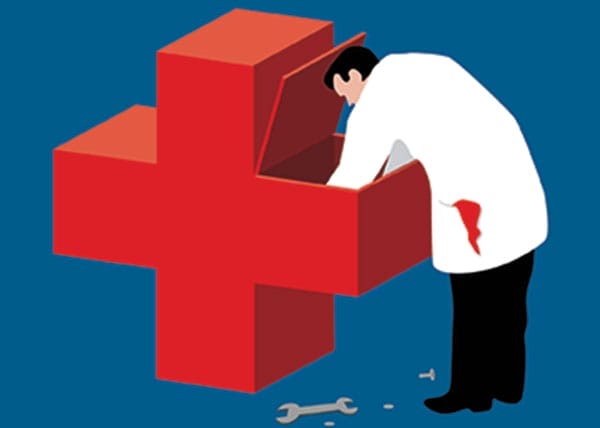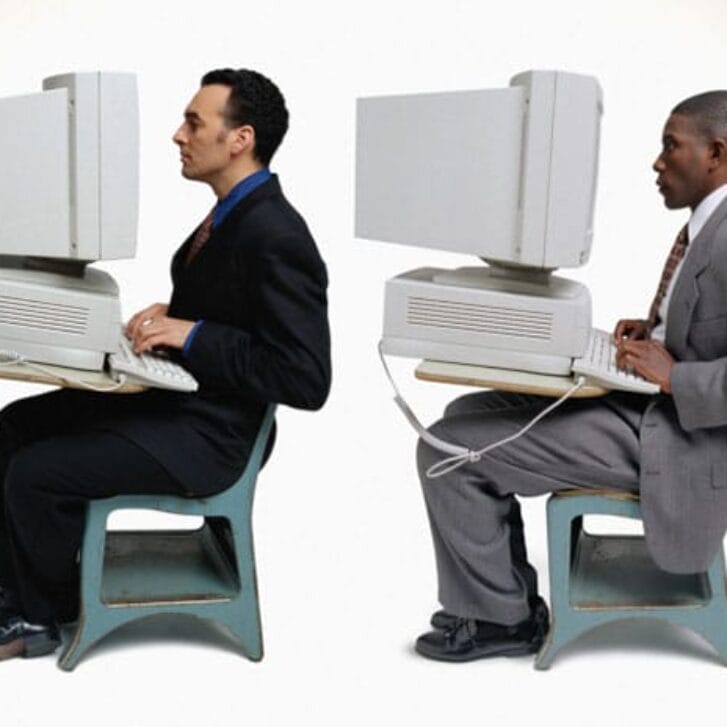It was a medical staff meeting in 1993 that did it. Managed care had taken hold of the reimbursement system. Physicians were being challenged to think differently. I was the chair of OB-GYN at one of the top community academic centers in the country, and I was running a meeting with colleagues who were unanimously decrying any change to the “perfect” physician-centered system. It was bizarre to hear smart people say change would be catastrophic, even though we had priced medicine out of any reasonable market, failed to coordinate a lifetime of care for a patient and had no way to assess our outcomes.
That’s when I decided that if I could deliver a 10-pound baby successfully, I should be able to master the skills needed to help lead an optimistic future for myself and colleagues. I decided to study at the Wharton MBA for Executives (EMBA) Program, which led to an abrupt transformation in my career that has culminated in my being chosen to lead one of the oldest and most prestigious health science universities and health systems in the country.The fact is that if we continue doing what we are doing, American academic health centers will be extinct. The old finances of relying on clinical reimbursements, National Institutes of Health funding and tuition no longer work. We are creating a “new math” around creative partnerships, innovation and venture philanthropy.
As I think about it, it wasn’t one class or one professor, but three tenets from my Wharton EMBA experience that have had the greatest effect on my career and the organizations I have served.
- “The most important decision you make this year will be your study group.”
It was the first weekend and we had hardly had a chance to meet one another, when we were herded into a room in what I later called “a cross between the NBA draft and pin the tail on the donkey.” To fill their study groups, everyone was looking for the right combination of finance, accounting, marketing and management skills. My gynecologic skills made me the least sought-after player in the EMBA draft (flashbacks to gym class in junior high).
What initially was a humiliating experience eventually changed my life. Members of our group have continued to be trusted friends and advisers (we have gotten together at least once a year for the past 20 years). Most importantly, it taught me the power of collaboration. You may be surprised: Teams aren’t taught in medicine.
Shortly after graduating from Wharton, I worked with the School’s Thomas Gerrity Professor, Richard Shell, to publish an article based on the “Pheasant Egg Case,” in which we compared physicians and MBAs from around the country. In a case study format, we challenged participants to solve a problem that required collaboration, creativity and navigating ambiguity. About 82 percent of the MBAs got to the “everybody wins” scenario; only 11 percent of the docs were able to find a solution. We posited that because of the way we select and educate physicians, doctors act as though they have joined a cult centered on competitive, autonomous, hierarchical and noncreative biases. It is exactly the reason that MBAs and entrepreneurs feel excited about the future and doctors assume that they will be losing control. Our conclusion: It’s time for health care providers to think “outside of their biases.”
Both at Thomas Jefferson University and Hospital System and in my previous role as dean of University of South Florida College of Medicine, my team and I transformed the way we educate physicians. We cannot expect to select medical students based on science GPA, MCATs and organic chemistry grades, then be surprised that doctors are not more empathetic, communicative and creative. At USF, for instance, we partnered with TELEOS, an institution with Wharton ties, to choose students based on emotional intelligence.
- “Negotiating without leverage is begging.”
A common theme of our EMBA leadership courses was establishing leverage. My research makes it clear that physicians often enter into difficult negotiations without knowing their goals, their best alternative to a negotiated agreement, or the other party’s wants and needs. This failure was never clearer than when I had the opportunity to lead a medical college that did not own its own hospital. Its major hospital “partner” dictated the terms of business. The result was both begging and name-calling.
Using models taught at Wharton, we turned the equation around. We established a goal of becoming a top academic medical center and informed the hospital system about how having a closer relationship could help us both. But we made it clear that the dependent variable was no longer our success. The end result was a 2.0 strategy, whereby the university’s health system became an international power. Establishing that leverage and the ascendancy of the brand benefitted both the university and the community.
- “If you really want to transform something, don’t change the existing reality. Create a new model that makes the old model obsolete.”
This Buckminster Fuller quote was referenced several times in my EMBA classes. The ability to look at what will be obvious 10 years from now and start doing it today through “iterative innovation” is the way out of the “impossible” situation that health care finds itself in.
While others are trying to change the existing reality of decreasing hospital admissions, we are embracing a new model around telehealth at Jefferson to provide unscheduled care to patients when and where they want it. We will redefine acute-care delivery by creating a virtual emergency department where acute and unscheduled care is expedited outside of the traditional four walls of the hospital.
Being wildly optimistic about the future of health care can evoke strange looks, or worse, from colleagues. Wharton taught me one other valuable lesson: “The winners are those who embrace the future and create it now.” The future is not determined by fate. Perhaps it is time for those of us who lead health plans, large hospital systems and physician groups, along with employers and policymakers, to spend time on how we can use new technologies and processes to fundamentally transform the system and change the DNA of health care—though it might not be as difficult as delivering a 10-pound baby.
Dr. Stephen K. Klasko, WG’96, is president and CEO of Thomas Jefferson University and Jefferson Health System.
























